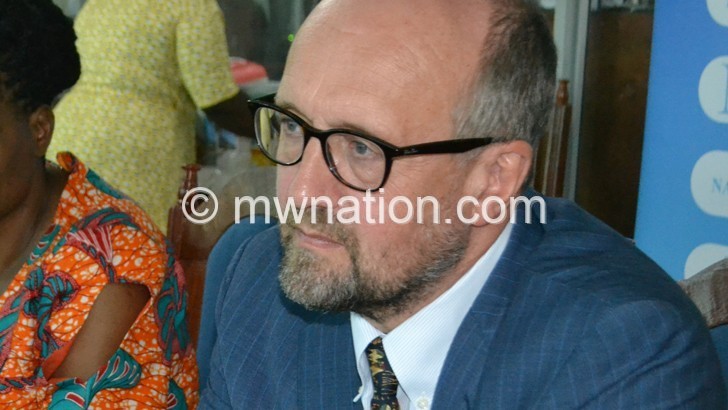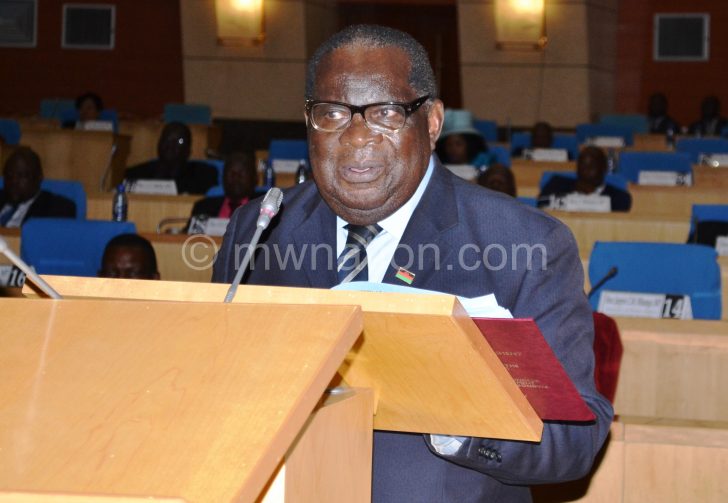World Bank urges financial discipline
World Bank country manager for Malawi Greg Toulmin has urged Malawi to contain recurrent expenditure ahead of the 2019 Tripartite Elections.
Toulmin said that past experience suggests that Malawi struggles internally with repeated episodes of volatility in growth and fiscal performance over the political business cycle, as development which if not contained, would shutter the country’s progress it has made on the economic front.

“The good news is that Malawi’s economy has been responsive to good policies. What that means is that, if government maintains their current fiscal and monetary prudence, recent progress can be sustained and built on.
“Despite the recent progress, the challenge will therefore be to avoid such volatility by containing recurrent spending, especially as we approach elections. Externally, weather shocks remain a major part of Malawi’s economic cycle,” he said in an e-mailed response to Weekend Nation questionnaire.
Christian Ebeke and Dilan Ölçer, in their 2013 International Monetary Fund (IMF) policy paper titled Fiscal Policy over the Election Cycle in Low-Income Countries including Malawi found that during election years, government consumption increases and leads to higher fiscal deficits.
In Malawi, pressure mounts on the wage bill, travel budget, social spending as well as election campaigns which in most cases is not budgeted for.
During the 2013/14 fiscal year for instance, government remained committed to increasing spending to social sectors such as education, health, agriculture and social protection programmes including the Farm Input Subsidy Programme (Fisp), social cash transfers to the vulnerable, public works programmes and school feeding programmes to cushion the poor.

During the year under review, total recurrent expenditure was projected at K461.5 billion but government had spent K549 billion by the close of the year, an increase from K397.2 billion in 2012/13 fiscal year raising the recurrent expenditures from 23.7 as a percentage of gross domestic product (GDP) in 2012/13 fiscal year to 25.2 percent in 2013/14 fiscal year.
During the 2008/09 financial year, central government recurrent expenditures was 31.1 percent of GDP, an increase from 26.1 percent of GDP registered the previous year.
During the period under review, total expenditures increased from 27.6 per cent of GDP in 2007/08 to 38.5 percent in 2008/09 financial year mainly to increased cost of Fisp and one-off expenditures on May 2009 general elections and 2008 population census.
In an interview on Tuesday, Minister of Finance, Economic Planning and Development Goodall Gondwe while admitting on the pressure to appease the electorates during this period, said government is working hard to contain the fiscal discipline.
“We have to be more strict, we should not just start programmes for the sake of it just to please the electorate and this is what we intend to do.
This is achievable if we stick to the discipline which is our job to ensure we stick to that. A number of countries like Ghana which used to do very well but they flopped on elections and we do not want to do the very same thing,” said Gondwe. n
—Read full interview with Toulmin on GUEST SPOT.





